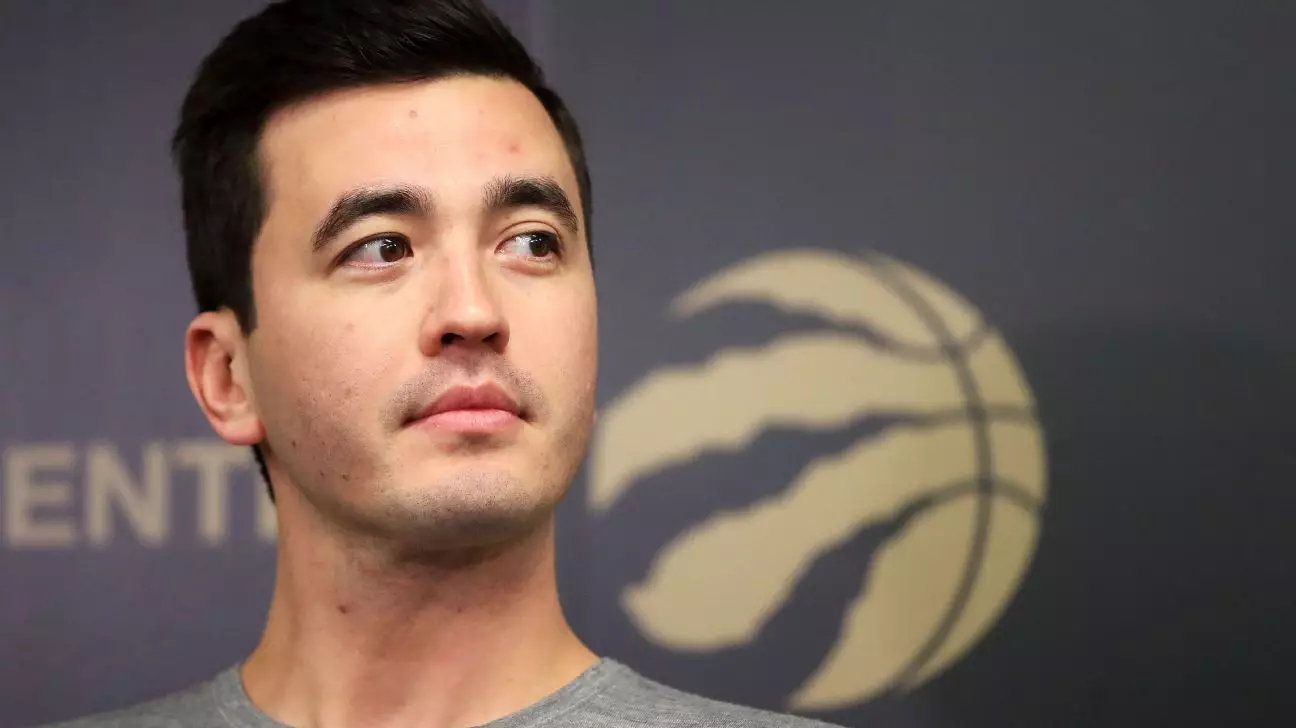The Toronto Raptors’ decision to elevate Bobby Webster to the role of head of basketball operations signals more than just a change in leadership; it embodies a strategic commitment to stability and future success. Webster’s promotion provides a sense of continuity that many teams rely on during periods of upheaval, especially following the departure of a legendary figure like Masai Ujiri. While Ujiri’s tenure brought undeniable triumphs—most notably the 2019 championship—the move to endorse Webster suggests the organization’s belief in nurturing internal talent capable of guiding the franchise forward. This decision, fuelled by Webster’s proven track record and deep understanding of the Raptors’ culture, demonstrates a desire to preserve the team’s core philosophies amidst a rapidly evolving league landscape.
The Significance of Webster’s Internal Ascension
Webster’s career trajectory within the Raptors reflects a rare blend of loyalty and competence, highlighting the importance of internal development. Joining the franchise in 2013 under Ujiri’s mentorship, Webster’s ascent from vice president of strategy to assistant general manager and eventually to general manager reveals a comprehensive grasp of the team’s inner workings. His prior experience at the NBA league office further enriches his perspective, granting him a broad understanding of league dynamics beyond team management. In a league where external hires often come with doubt about cultural fit, Webster’s journey promotes a narrative of measured growth rooted in understanding the organization’s ethos. His appointment underlines the Raptors’ confidence in his leadership style—a strategic choice that aligns with their emphasis on continuity.
Leadership Style and Future Outlook
The critical assessment among insiders, such as Keith Pelley and other MLSE executives, underscores Webster’s management acumen. Their observation during summer league, where Webster effectively articulated his vision, indicates a leader prepared to bridge the gap between strategic planning and team-building. While the Raptors have endured a tough recent stretch with a 30-52 record and missing the playoffs, the focus shifts toward rebuilding with a sense of purpose. Webster’s familiarity with the roster—highlighted by key players like Scottie Barnes, Brandon Ingram, and RJ Barrett—positions him to make targeted moves that could restore competitiveness. His role isn’t merely administrative; it’s about inspiring a culture of resilience and innovation that can unlock the team’s latent potential.
Implications for the Raptors’ Identity and Strategy
The Raptors face a critical juncture where internal stability must translate into tangible results. Webster’s promotion signifies an intent to craft a clear, disciplined approach to team development. Given the franchise’s history of strategic brilliance under Ujiri, there is optimism that Webster’s leadership will carry those principles into a new era. This approach emphasizes fostering young talent, making shrewd trades, and cultivating a cohesive playing style suited for the evolving NBA landscape. Ultimately, the decision reflects a belief that practiced internal leaders—those intimately familiar with Toronto’s unique identity—are best positioned to steer the franchise back toward championship contention.
This shift underscores the importance of leadership authenticity and strategic patience, qualities that Webster has begun to embody and will need to harness fully if the Raptors hope to reclaim their place among the league’s elite.

